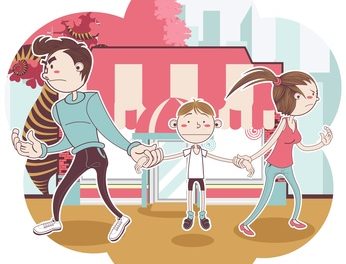Connecting with my (unknown) paternal grandparents
This post certainly isn’t about me. However, I will start by reflecting on the fact I never had access to my paternal grandparents’ culture. My father is from an Italian background. I never lived with him and his parents were dead before I was born. I don’t speak Italian and have never visited Italy. However, I know I wouldn’t be here today if an Italian couple hadn’t fled Europe during times of conflict.
I feel a little uneasy when people assume I can’t understand being from a migrant background because I’m ‘white’. Why? Firstly. because I’m not ‘white’ (I’m a type 3 or 4 according to the makeup chart below). Also, my grandparents were booted out of my birth country during race riots. I’ve lived a relatively privileged life and suggesting I’ve been subjected to racial discrimination would be utterly ridiculous. However, I am informed by my grandparents’ lives. In fact, I’ll be traveling to Italy next year to retrace some of their steps. On this note, I think grandparents are a big part of our identity, no matter how distant they are. When grandparents die, a wealth of knowledge and opportunity disappears. I think it is very important to have a meaningful relationship with them when possible.

Grandparents have limited time
Since my daughter’s abduction, her grandfather and great grandmother have died. Her single remaining grandmother is in her late 70’s. While healthy, I am concerned that things can go downhill very quickly when you are 75 years old.
I often visit Japan with my mother so that she can see her grandchild. The abductors refuse to allow contact, but my mum comes all the same because she loves her granddaughter.
Our court order says nothing about my grandmother or the need for an abducting parent to supervise our visitations. However as we don’t want to fight in front of my daughter, her grandmother simply says ‘hello’ when we meet at the station and then turns away when the abductor says [all in Japanese] ‘hey… only you… nobody else… she must go away now!’ I translate this to my mother. Mum then sadly turns her back and walks off to explore a small Japanese town by herself.
A significant worry is that every year my mother gets older. How much longer will she be able to keep doing this? Will her granddaughter miss out on knowing her for who she is? We simply don’t know.
Cultural barriers for grandparents
Navigating a different country
I chose to visit Japan in my early 20’s. It was an adventure. I learned the language. I’m familiar with the food. I’m familiar with the customs. Japan is not strange and the small town we stay in is my second home.
Grandma is a little bit different! She’s an avid traveler and has been to Japan a few times. In fact, she introduced me to Japan aged 15 by taking me there for one of her business trips. Mum is liberal-minded, forward thinking and certainly outwards looking (more-so than me in many facets, with a long and decorated career to prove it). However she does not speak Japanese and spends 70 per cent of her time scouring regional Japan for a place that will serve her a long black coffee with toast.
Language and cultural nuance
Conversations can be quite challenging. For example when we meet the abductors at the station, I have to translate what they are saying. I’m not perfect at translating and there are a lot of cultural nuances going on behind the scenes that mum isn’t privy to. It’s extremely distressing for her to navigate these circumstances because everything happens through assumptions, guesswork, translations and other filters that distort reality.
Sadly, the cultural power imbalance strips my mother of her cultural significance within our family circle. She is silenced and dictated to to via translation rather than being able to provide a mature, calming and insightful perspective. She is then treated like a meddling idiot rather than a legitimate grandparent. I think this is a disgrace because Japanese philosophy emphases respect for the elders.
I think cutting out a child’s grandparents goes deeper than the abduction itself. It’s a devious form of ethnic cleansing whereby culturally diverse children are stripped of their heritage. Elders are extremely important within every culture I’m familiar with. I feel distressed seeing my mother treated like an unwanted stranger in a foreign land rather than being treasured for her cultural significance.
Related family challenges and conflicts
Unfortunately these circumstances have degraded what was once a much healthier relationship between my mother and I. We are still close, but international child abduction consumes most of casual conversations. This often elevates our mutual feelings of distress and hopelessness.
Commonly, our arguments involve my mother arguing that I haven’t pushed the abductors hard enough during our discussions. This frustrates her because she can’t speak Japanese, so lacks the ability to frame our position in the way she’d like to. Equally, it frustrates me because I’m navigating us across thin ice and various cultural boundaries without complete Japanese proficiency. This is distressing because neither of us have the right answer and our attempts to contribute towards a common cause are largely futile.
Disappointingly, my mother cannot enjoy the full relationship that she deserves to have with her children and grandchildren. Mum raised her children as a single mother, with a lot of help from my grandmother. Both women are amazing and exemplify what our family’s about. Their values and lessons learned in life have been paramount all throughout my life. Abduction has left a large crater in our family’s foundations. Our relationships with each other (my daughter included) will never be as strong as they deserve to be.
Those final years are paramount…
Regretfully, my grandmother’s final years were seriously tarnished by selfishness. Her son (a charismatic salesman who has perfected the art of delaying inevitable visits from a plethora of debt collectors) was being dragged through the family courts by one of many ex-girlfriends, thoroughly convinced he was hiding a fortune from her. He had a heart attack from the stress.
Soon after her son’s heart attack came the abduction of her granddaughter. Gran didn’t deserve any of this! Also, gran was fully entitled to enjoy an ongoing relationship with her. They were both harmed by the abductors.
During the same year my father died. My daughter met both and enjoyed both. However, the current rhetoric she is being provided maliciously strips her of her rightful ancestry. This is why abducting a child is more than simply physically displacing a child – it’s a form of cultural cleansing where there is absolutely no respect for history, culture, family elders and the lived experiences that result from these.
Grandparents are central to reforming abduction
Getting minimal access to abducted children is a long, expensive process. Grandparents concurrently grow older and go through undue stress, when their health could fail at any moment. Grandparents’ contribution to a children’s culture and identity is priceless.
Faster processing of access claims coupled with effective enforcement of court orders would reduce stress on grandparents and increase abducted children’s time with their grandparents. Most importantly it would help to give abducted children full access to both sides of their family. Uninterrupted physical and cultural access to both sides of the family is paramount. Children and grandparents shouldn’t be pawn in games of divorce and abduction. Our children and grandparents deserve better as they both play an important role in making the world a better place for everybody!





